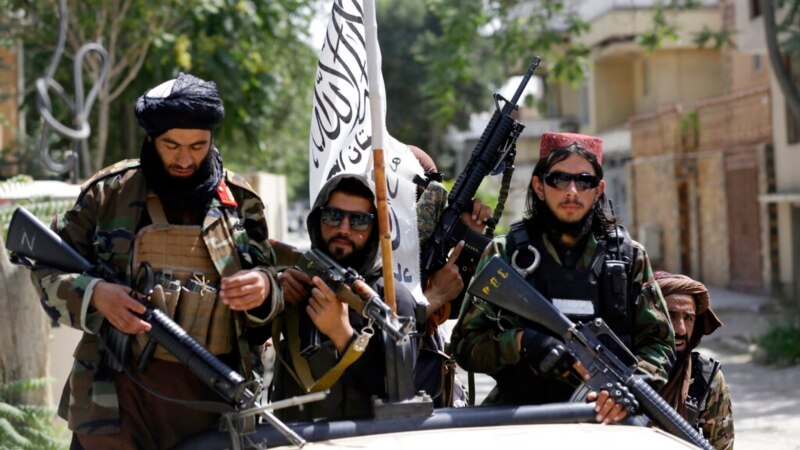Religious freedom in Taliban-ruled Afghanistan on steady decline, US watchdog says

ISLAMABAD — An independent U.S. federal government agency reported Wednesday that Afghanistan has experienced a “continual and significant" decline in religious freedom under the de facto Islamist Taliban rule.
The U.S. Commission on International Religious Freedom, or USCIRF, charged in its new report that Taliban authorities “have continued to repress and significantly stifle any action or behavior that does not conform with their strict interpretation of Islam.”
The Taliban seized power after the exit of U.S.-led international forces in August 2021. De facto Afghan authorities have implemented an extreme interpretation of Islamic laws, leading to sweeping curbs on personal freedoms and restricting Afghan women from participating in most aspects of public life.
The USCIRF stated that the hard-line leaders have silenced religious clerics, prevented religious minorities from observing religious ceremonies, and continued to restrict the movement and educational access of Afghan women and girls.
“Under de facto Taliban rule, the use of corporal and capital punishment has resumed in Afghanistan to penalize perceived violations of Shariah [Islamic law]. Punishments include public executions, lashings and floggings, stoning, beatings, and acts of public humiliation, such as forced head shaving,” the report said.
The Taliban have not immediately commented on the findings of the U.S. watchdog and do not respond to VOA queries because they have banned the media outlet in Afghanistan.
The U.S. report came on a day when the Taliban-run Supreme Court announced that a man and a woman were publicly flogged in the Afghan capital, Kabul, after being convicted of an “illicit relationship.” It did not elaborate and stated that the female convict received 32 lashes, while the man was flogged 39 times.
Nearly 600 individuals, including women, have been publicly flogged in Afghanistan after the Taliban takeover, drawing an outcry and calls from the United Nations to immediately end the corporal punishments for being in breach of international law.
In June, the fundamentalist authorities flogged more than 63 people, including 14 women, in a packed northern Afghan sports stadium after convicting them of homosexuality, adultery and other “immoral crimes.”
The Taliban also have publicly executed at least five Afghans convicted of murder, citing the Islamic concept of retributive justice known as qisas.
The United States and the world at large have refused to recognize Taliban authorities as the official government of Afghanistan, citing restrictions on women’s access to education and employment, among other human rights concerns.
Girls ages 12 and older are not allowed to attend secondary school, making Afghanistan the only country in the world with this restriction, while female students have been barred from universities. Most Afghan women are prohibited from working in both public and private sectors, including the U.N.
The USCIRF recommended in its 2024 annual report that Washington designate Taliban-run Afghanistan as a "country of particular concern" under the International Religious Freedom Act for alleged “severe violations” of religious freedom. It also called for continued targeted sanctions on Taliban officials responsible for severe violations of religious freedom.
The Taliban have persistently rejected allegations of human rights abuses or discrimination against women leveled in U.N. reports and by international human rights groups as propaganda against their Islamic administration.
The de facto government insists women’s rights in Afghanistan are being protected under Islamic principles, and that the Taliban’s “judicial system provides justice” to the people in line with the Quran and Shariah, or Islamic law.
